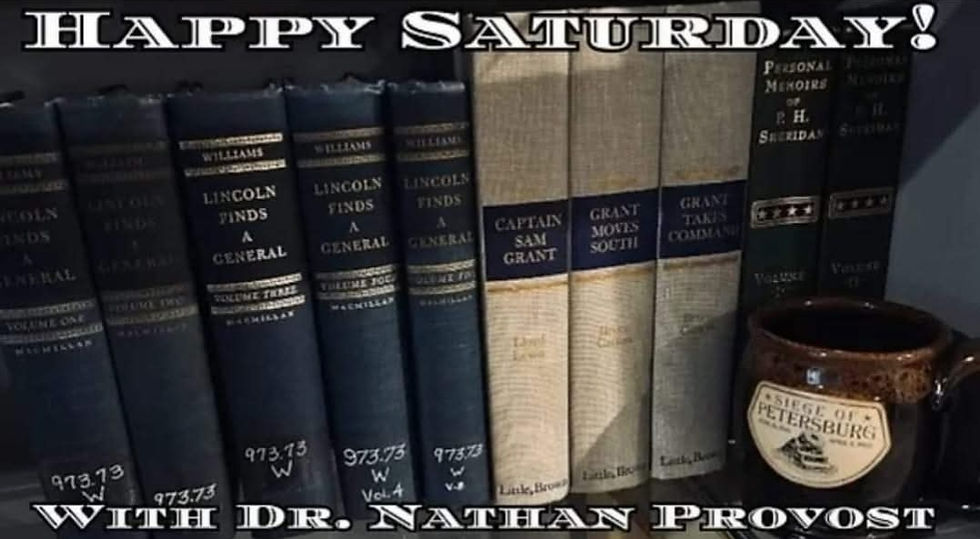Boys and Their Heroes
- darrenscivilwarpag8
- Sep 13
- 3 min read

When I was a child, I remember sitting in a shared office space and laundry room in a retirement community somewhere in Mesa, Arizona. I sat next to my grandfather watching him play some game on the computer called “Shogun: Total War.” Each of the figures on the screen enamored me; I knew my memory was poor, so I would rush to the living room, asking my parents to remember each of these units. Being only seven at the time, I had no way of understanding these historical figures, such as Buddhist Warrior Monks or individuals like Uesugi Kenshin. All I knew was that my life changed when I was introduced to history. This personal experience, sitting next to my grandfather, was the spark that ignited my interest in history.

The advent of the internet revolutionized our ability to learn about historical events and people. I remember clicking through countless Wikipedia pages and delving into books about specific topics, whether it was the Roman Empire, Napoleon, or World War I. It was a bit embarrassing to admit my interest in history during my school days, fearing it was “uncool” or that I might be judged. However, over time, I realized this was a misconception. Many other young men found historical figures like Julius Caesar fascinating. If they didn't admire historical figures, they looked to role models in various fields, such as sports. Heroes, it seemed, had a profound impact on inspiring the youth.
This inspiration was an uncommon phenomenon. In the 19th century, Thomas Carlyle wrote On Heroes, Hero-Worship, and the Heroic in History. He speculated that history was one biographical series of “Great Men.” History was written by great politicians, war chiefs, and leaders across the world. Therefore, it is unsurprising that men like Dennis Hart Mahan created a Napoleon social club at West Point Academy in the early 19th century. Early biographies of George Washington bordered on idolatry. There was no better way to approach history than to create a timeline with a main character, as everyone else acts in a supporting role. This form of history was misguided and exclusive. There was little empirical evidence to go by and an oversimplified history. Luckily, sound minds prevailed.
Napoleon did not pick up the crown from a gutter and put it on his head. He looked around and saw everyone else murdering each other over said crown. He managed to survive. Environments are an equal part of any person’s opportunity in life. Ulysses Grant would be little more than a footnote in history for his service in the Mexican-American War had the Civil War not broken out or our founding fathers resolved slavery. Robert I benefited from the death of Edward I, just as Frederick II benefited from the death of Catherine the Great. Therefore, what is the role of these actors without the support of uncontrollable events and decisions of the so-called “supporting actors”? Understanding the context in which these historical figures operated is crucial to appreciating the complexity of history and the role of 'supporting actors'.

That said, are we really going to dismiss the initiative taken by some of these individuals based on the environment of the time? Howard Zinn seems to think so in writing A People’s History of the United States. The benefits are writing from the perspective of groups of people, but history is more complex than class conflicts. Individual decisions cannot be measured as a group, nor can they be measured as perfect. Instead, there is a truth in history that depicts the flaws of individuals but simultaneously recognizes their achievements. It is these achievements that young men look toward. After teaching for several years, I noticed a trend among young men who are interested in history. It always starts with an individual or warrior class that is a “hook.” No matter how much I disagree with some of their admiration for specific figures or groups, I bite my tongue. I know they will read more and come to understand history better. I want them interested. Therefore, let boys have their heroes. By understanding the context and the challenges these historical figures faced, young men can be inspired by their resilience and initiative. Give them a chance to mature before any such ridicule occurs.







Comments